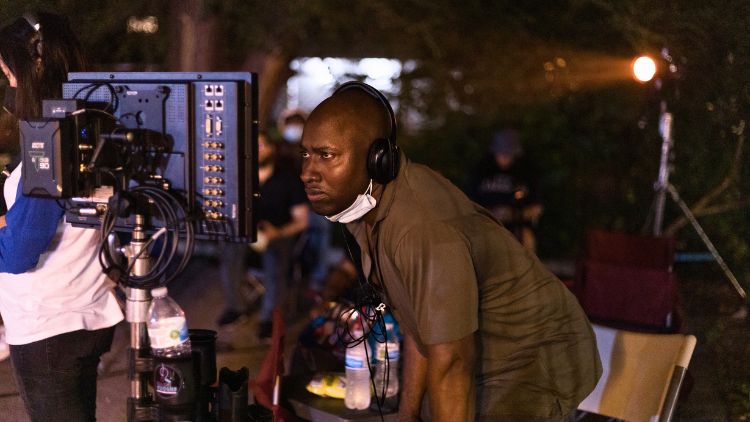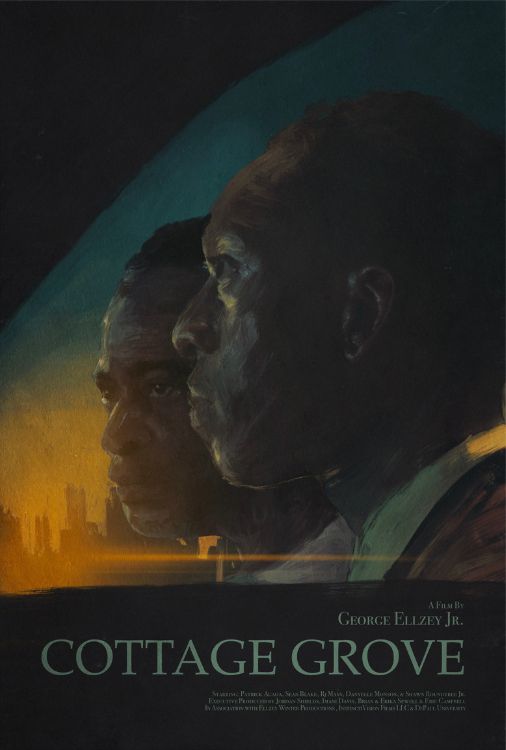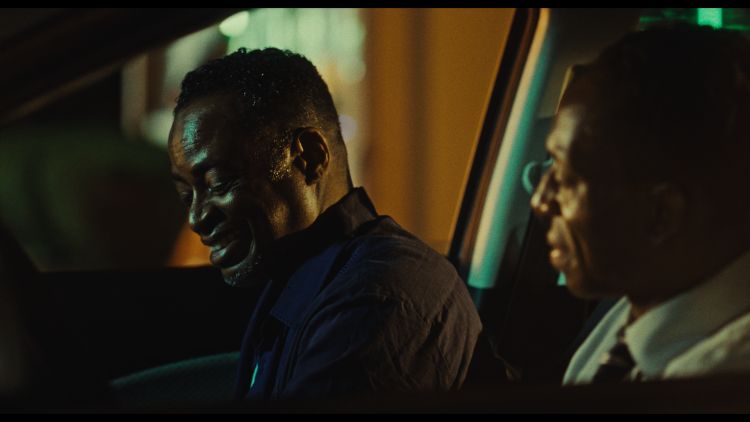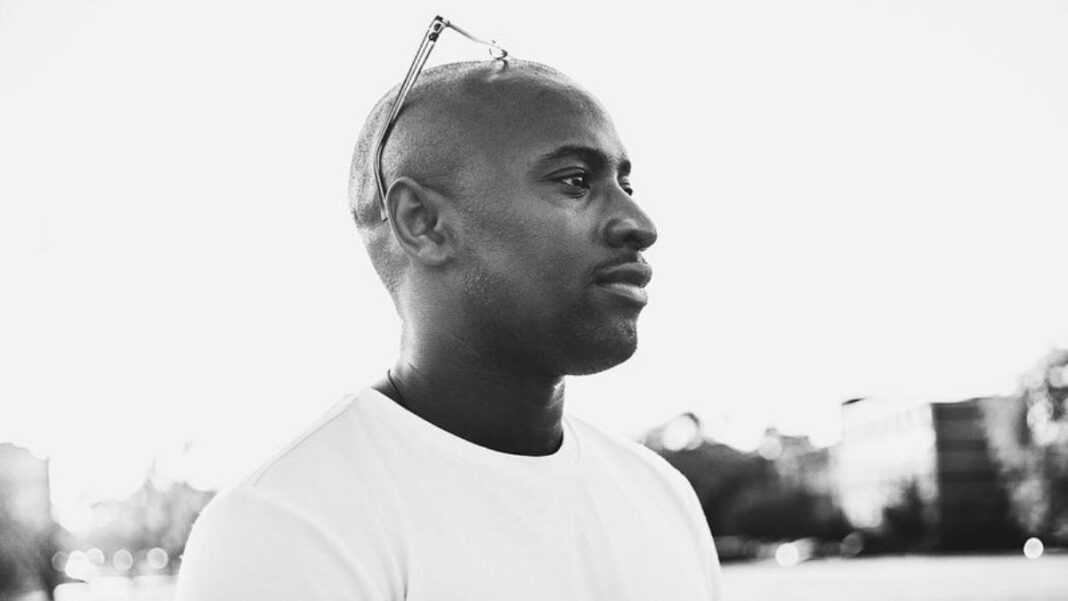George Ellzey Jr. (Photo Provided).
“Cottage Grove” is a short film that captures the complex and often painful dynamics of father-son relationships. Through cinematic storytelling, it takes viewers through rejection, fear, anger, acceptance—and ultimately, reconciliation. It’s a love letter to Bronzeville, Chicago and those searching for healing among family, friends and their communities.
We recently had the opportunity to sit down with George Ellzey Jr. the film’s writer and director. A proud South Sider, George is a creative force with a heart for amplifying the city’s cultural richness. And with “Cottage Grove,” he does just that.
George, who grew up in Hyde Park and now resides in Bronzeville, holds a deep admiration for the South Side. It’s where his story was shaped and where he found the courage to confront long-held pain.
“After my parents divorced, my father and I lived in the same neighborhood. But he was like a ghost—I’d hear about him from others, even met his coworkers who’d say, ‘You look just like your dad,’ but I never saw him. Never knew him.”
That changed in 2019.
After years of silence, they reconnected—thanks to a short film George had posted on YouTube. His father’s girlfriend found it, and that coincidental moment led to a call, a reunion and the beginning of something new. As fate would have it, during George’s thesis year in DePaul University’s MFA program, his father had a stroke. George picked him up from the hospital and drove him to the Walgreens at 51st and Cottage Grove.
While events in the film differ from George’s experience with his father, that drive—both literal and emotional—became the spark for “Cottage Grove.”
The film was born out of Professor Brian Zahm’s experimental film course at DePaul University where George accessed a level of creativity he hadn’t yet explored. What began as an assignment evolved into a personal, cinematic reckoning.

George Ellzey Jr. (Photo Credit: Mireillee Lamourt).
Nicole Joseph: What was the biggest challenge in bringing “Cottage Grove” to life, and how did you overcome it?
George Ellzey Jr.: The biggest thing was finding an audience. This is a black father-son story. I’m just gonna say — I thought we would be accepted into more film festivals because I thought this story would be so relatable, but we weren’t and that was discouraging for me. I wrote this for my community and I wanted to share this with my community.
Sometimes we can put these expectations on ourselves – I need to get into this festival, this place. You will land where you need to. You’ll land and trust when you land there, the people who need to be present will welcome you with open arms. And that’s what had happened.
Joseph: Thank you for sharing. As a rising black filmmaker, do you feel responsible for telling your specific stories?
Ellzey Jr.: I do feel a responsibility to be authentic to my perspective. How I lived. Where I grew up. I do have a responsibility for that, and I think that’s what makes storytelling special.
Joseph: Let’s talk about the importance of “Cottage Grove” being featured on the AMC+ Future of Film series.
Ellzey Jr.: I mean, this is a huge, huge gift, to be honest. I did not see this on my Bingo card when we started with this. My purpose as a director is to shine a light on the unspoken things in life so it can spark healing in our communities.

Joseph: As an independent filmmaker, who funds your travel for the film festival circuit?
Ellzey Jr.: I think one of the biggest things that our market lacks in the Chicago film scene is financing. We have so many great filmmakers, and people have proven themselves, but there is not a lot of infrastructure here.
Nicole: What advice would you give to aspiring filmmakers — the ones who may feel like they haven’t obtained the success they desire?
George: I would say to rely on your community, which has moved the needle for me, not necessarily career-wise, but emotionally, mentally and spiritually. Without my mom, my family, my brothers and sisters from my church, some colleagues whom I was transparent and vulnerable with, they helped make it possible.
A Testament to Healing and Home

A scene from the short film, “Cottage Grove” (Photo Provided).
At the heart of “Cottage Grove” is confrontation—the emotional reckoning of a son facing the silence and absence of his father. But it doesn’t end there. What unfolds is a healing apology—an act of grace that shifts the course of their relationship and opens the door for a new kind of truth, one where father and son can finally stand side by side.
“Cottage Grove” has screened in over 20 festivals and is now shortlisted for a People’s Telly Award. George credits every supporter who helped bring this story to life. “Cottage Grove” isn’t just a film—it’s a call to believe that healing, reconciliation and common ground are always possible.
Beyond the camera, George Ellzey Jr. is an advocate for honest storytelling—especially stories that give Black men space to express vulnerability. “Cottage Grove” is a testament to the power of community and healing. While many filmmakers leave Chicago, George is committed to building the industry here and uplifting overlooked talent.




